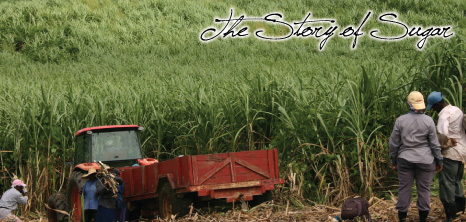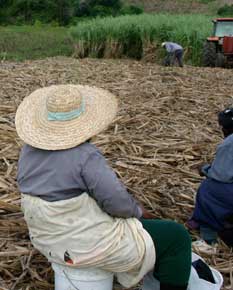|
Sugar, a Strong Part of Our History and CultureSugar is knitted deeply into the historical and cultural fabrics of the people of Barbados. This erect, perennial grass with bamboo-like stems has been the backbone of Barbados for centuries and has surely proven to be a good move when the switch was made from cultivating tobacco and cotton in previous years. This green and sustainable crop was introduced to the island by the early settlers and proved to be an excellent means of trade for Barbados.
By 1649, Barbados was seeing sugar as the presiding export source of the island and by approximately 1660, it occupied about 60 percent of the island's land and accounted for a whopping 90 percent of its total exports. Such an export percentage pushed Barbados in a place of great wealth, fame and stature.
Benefits of Sugar IndustryThe highly rated Barbados sugar is renowned for its darker, more molasses tinged flavor. The word recycle would be an appropriate word to use when it comes to sugar production in Barbados. The island's soil can become quite prone to soil erosion and as such, sugar cane has proven to be ideal in holding soils together and disabling soil erosion.
The fibrous roots of the sugar cane help in stabilising the soil and the trash leaves left after harvesting, aid in replacing and where necessary, providing the necessary nutrients needed for a better crop the following year.
After the canes are crushed, the remaining fibre, or bagasse, is used to fuel the island's sugar factories. This bagasse along with 'factory mud' are excellent fertilisers for the soil.
The molasses that is extracted from the raw sugar is an invaluable ingredient in Barbados' Cockspur and Mount Gay rums.
Scientists are unable to provide answers as to what makes Barbados' sugar superior in quality. Some say that the calcium-rich coral-island soil enables lust crops without the usage of harmful pesticides. Arguably, Barbados is the best producer of sugar in the world.
How Barbados Makes Its SugarCombined efforts between sugar cane harvesting machines and cane cutters are responsible for the harvesting of sugar cane in Barbados. After harvesting, the canes are loaded onto trucks and taken to sugar factories where they are ground in order to extract the juice, leaving behind a fibrous residue called bagasse. It is then cooked for some time before allowing to dry. Throughout the cooking process, various substances are added in order to eliminate any impurities that may exist in the sugar cane juice. These impurities then rise to the top in the form of foam and are subsequently removed. Lime juice and coconut milk are then added as refining agents in the processing of muscovado sugar as they do not leave any flavors behind. After muscovado sugar is cooked and dried, it is broken in various pieces and sold off in markets.
Changing TimesIn Barbados, sugar is relatively expensive to produce based on the fact that it is now primarily grown on a much smaller scale. Despite this, the island still sees it as an integral aspect of its existence even though it doesn't fully depend on it for sustainability as tourism is the mainstay of the country. Over the years, rationalisation of the industry in Barbados has seen a drastic reduction in the number of sugar factories. The count has gone from twenty-six (26) to a mere two (2). Those two being Andrews Sugar Factory in St. Joseph and Portvale Sugar Factory in St. James.
Countries such as Barbados are asked to compete with the European Union along with countries like Brazil where the scale is so much larger, labour costs are lower and not to mention, it is very possible to find a sugar plantation in Brazil that is just about the size of Barbados. An agreement exists between Barbados and the European Union to export several thousand tons of sugar annually at favourable prices. After so many years, Britain is still one of the most important export markets for Barbados sugar. The introduction of modern-day machinery to the sugar industry in Barbados has been partly responsible for the decrease in available jobs in the sector as well.
In recent times, the government of Barbados has been trying to find creative ways that would save the face of the sugar industry on the island. As such, birth was given to the branding of a premium Barbados sugar brand known as Plantation Reserve which is produced by the Barbados sugar industry and marketed and exported through The West Indies Sugar & Trading Company Ltd, also known as Wistco. This plan of action has proven to be quite an effective marketing tool as Barbados sugar is now heavily marketed across Britain and widely used to enrich the taste of many recipes and in hot beverages.
|
|
|

 Sugar Cane grew on plantations which had their own mill that ably assisted in the grinding and juicing process. Slave labour was mainly responsible for the production of this industry and as a result Barbados became a leader in Trans-Atlantic Slave Trade by the mid 17th century.
Sugar Cane grew on plantations which had their own mill that ably assisted in the grinding and juicing process. Slave labour was mainly responsible for the production of this industry and as a result Barbados became a leader in Trans-Atlantic Slave Trade by the mid 17th century.
